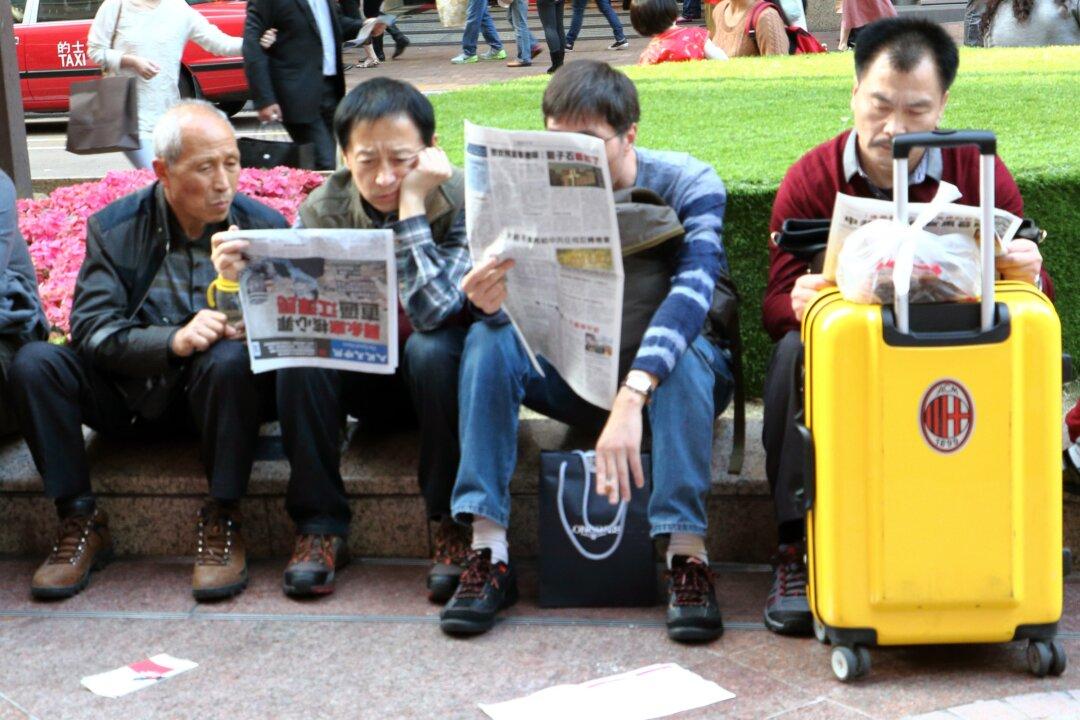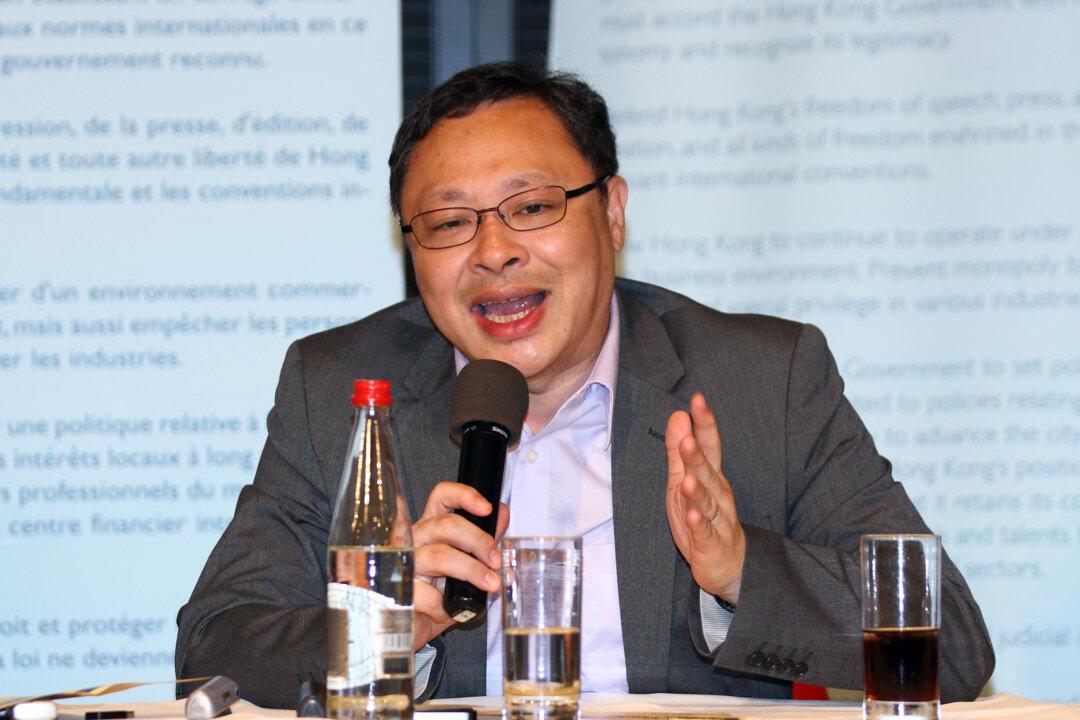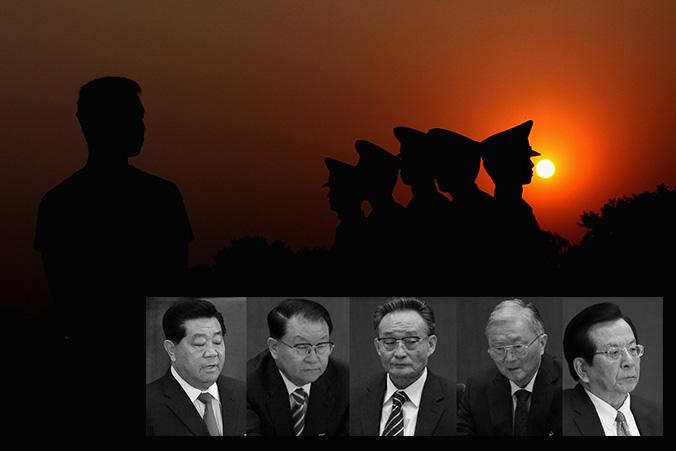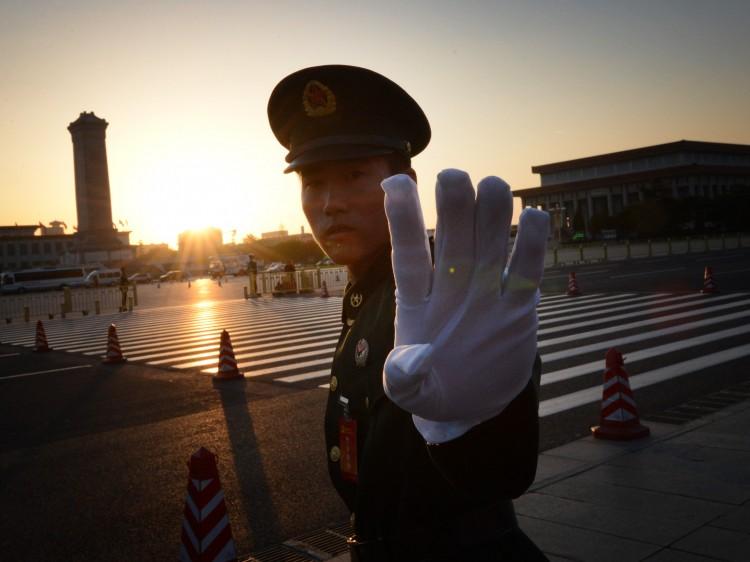HONG KONG—The Chinese edition of the Epoch Times international media company has recently taken great strides in popularity, filling a growing worldwide hunger for information about the true situation in China.
As China’s economic capacity becomes the second-largest in the world, both the international community and the domestic public urgently need to have unfiltered news with non-fabricated reports on China. However, due to economic links to the Chinese market, many media outlets in Hong Kong and Taiwan have to self-censor, filtering out certain news items that are considered sensitive by the Chinese Communist Party (CCP).
Epoch Times website has made a great leap in its Alexa popularity ranking, with an increased volume of visitors overwhelming almost all Chinese media outside China. Epoch Times has the widest global coverage of any newspaper, and supply of the paper frequently falls short of demand.
At the same time, some mainstream Chinese media in Hong Kong have suffered a sharp decline of at least one third in publishing, and many overseas Chinese mainstream media websites have slid dramatically in their Alexa rankings.
In addition, the CCP has been secretly controlling a considerable part of the mainstream media in Hong Kong and Taiwan. Meanwhile, authentic news about China has become an essential international need in political, economic and diplomatic arenas. The world needs to know the truth, but the Chinese Communist Party seals it off.
Since the detention of retired CCP leader Zhou Yongkang, the key person in the acquisition of overseas media by the CCP’s Jiang faction, and with the Deputy Minister of Public Security Li Dongsheng under investigation, the funds for the CCP’s acquisition of overseas media are cut off.
The lucrative oil and gas company Sinopec, which was long under the Jiang faction’s control, is now being purged. Overseas media penetrated or controlled by these funds are facing bankruptcy due to shortage of funding.
Ever since the political scandal known as the Wang Lijun incident broke out two years ago, shaking the CCP’s political arena, Epoch Times has accurately forecast the political situation in China. This has made local and overseas counterparts turn their heads and earned a rapid rise in readership, and the Epoch Group has become the world’s largest Chinese and multilingual newspaper company.
Online Traffic Hits Record Highs
As the no.1 global media, the Chinese Epoch Times website, called Dajiyuan in Chinese, continues to hit record highs in number of clicks.
The outspoken Epoch Times stands out from the global media that screen out news on the brutal persecution of Falun Gong in China. In the face of the CCP’s filtration of Chinese news, especially news of the persecution involving hundreds of millions of Falun Gong practitioners, Epoch Times faithfully reports on the real situation in China.
This means that overseas Chinese people, overseas media, researchers, and experts on China affairs inevitably turn to Epoch Times for true reports.
Because China is the world’s second largest economy, almost all the major countries of the world, the international consortium, and the people of Hong Kong, Macao, and Taiwan have ties with mainland China in economy and trade. Major events in China will inevitably affect the international community and surrounding areas.
True reporting on China plays an important role that may affect the world and nearby areas such as Hong Kong and Taiwan. Chinese and foreign media outlets use Epoch Times as a reference to understand China.
This has led to soaring readership for Epoch Times. Recently the overseas daily hit rate of the Epoch Times website has broken previous records: there were 1.66 million clicks on Jan. 14 and 1.785 million on Jan. 30. Overseas hits jumped from a weekly average of 5 million to 9.71 million in 2014, and during the week of Jan. 11 to Jan. 17 they reached another unprecedented high of 10.37 million.
Because the Chinese and English Epoch Times websites are blocked in China, all these hits are from oversea IP addresses.
Epoch Times is also promoted by the popular counter-blockade software Freegate, which enables people in China to read blocked Epoch Times news republished by dongtaiwang.com. Total daily hits on the website, including those inside China, jumped from the record high of 2.61 million on Jan. 14 to 2.65 million on Jan. 18 and 30.
About one million hits daily are from mainland China. Some of these are from the general public, some are from the CCP headquarters at Zhongnanhai, and some are from provincial ministries and other government departments.
In addition, Epoch Times has been adding pages on China news in the past two years, and it has frequently published special editions to meet the needs of readers and boost circulation at the same time.
Founded in August 2000, the Epoch Group has become a global multilingual newspaper and online media company with reporters stationed in 60 countries and regions. Its papers are published across five continents in 35 countries and 12 languages, including Chinese, English, French, and Japanese.
The website is available in 21 languages, including Bulgarian and Czech. At the same time, Epoch Times prints and publishes the elite global Chinese magazine New Epoch Weekly.
Popularity Overwhelms Other Overseas Chinese Media
According to its world ranking on the web traffic data site Alexa, Epoch Times website’s traffic increased quickly over the past two years at a pace that overwhelms almost all overseas Chinese media.
Alexa reports show that on Feb. 5 Epoch Times’ traffic ranked 4,857 in global popularity; 2,312 in the United States where 36 percent of the total hits come from; 167 in Taiwan which accounts for 34.8 percent of the hits; 519 in Hong Kong which accounts for 6.9 percent of the hits; and 1,585 in Canada which accounts for 5.3 percent of its traffic.
These rankings have steadily exceeded the World Journal, another popular overseas Chinese-language media outlet, which had been dominating the North American markets.
At the same time, the rankings of other major overseas Chinese media fell sharply. The World Journal’s ranking has dropped from its highest point, a ranking of 8,000 in 2012, to 9,000 in 2013. On Feb. 5 it dropped to 10,860, showing a continuing decline.
The World Journal ranks 2,748 in the United States which accounts for 70 percent of its traffic; 1,162 in Taiwan which accounts for 11.3 percent of its traffic; 2,312 in Canada which accounts for 8.8 percent of its traffic; and 2,460 in Hong Kong which accounts for 3.8 percent of its traffic.
The traffic of Hong Kong’s Sing Tao website is even worse. Its ranking has dropped from 517,035 to 554,864 within three months, whereas its highest ranking in 2013 was around 40,000. In 2012 its highest was 20,000.
Now Sing Tao has dropped below Alexa’s starting point for providing history, which is 100,000. Sing Tao’s data history is no longer tracked in the world ranking.
On Feb. 5, among Hong Kong’s pro-communist media, Ta Kung Pao’s traffic ranked 8,558, a decrease of 3,180 over the past three months; Ming Pao ranked 16,061, a decrease of 2,400 in three months; and Wen Wei Po ranked 12,560, a decrease of 1,687 in three months. In Singapore, Lianhe Zaobao ranked 4,680, a drop of 1,176 in three months, while in 2013 its highest rank was in the top 2,000.
Thus, among overseas Chinese media, the Chinese version of Epoch Times is the leader. In 2012, Epoch Times’ average ranking was about 6,000 with a high of about 4,000. In 2013 the average figure has risen to 4,500 with a high of 1,600.
The English Epoch Times has leaped even more dramatically. In 2012 it ranked about 40,000, and in 2013 it began to shoot up to the current 8,063, an increase of 5,343 in the past three months.
International Media Shield Facts About China’s Unrest
Nearly one million people from mainland China visited Hong Kong this Chinese New Year, and many of them hurried to snap up banned books and printed materials. They created a scene in Hong Kong by rushing to grab Epoch Times newspapers in the streets on the first day of the Chinese lunar year.
Epoch Times’ accurate reporting on China has become very popular, especially among mainland Chinese who are eager to know the truth of the Chinese communist regime.
Over the past two years, the political quakes in China have attracted global attention. With events such as the flight of Chongqing’s former police chief Wang Lijun to the U.S. Consulate in Chengdu, the subsequent downfall of Bo Xilai, the sacking of dozens of provincial and ministerial level officials, the head of the 610 office (a special CCP organ dedicated to persecuting Falun Gong) being removed, and the rumor of Zhou Yongkang’s detention, the intensive power struggle of the CCP has reached a climax.
So far, all the sacked CCP officials have been investigated on accusations of corruption, but many people find this explanation unconvincing. Epoch Times reported that the real reason Bo Xilai was arrested was his political coup and organ harvesting, which were covered up by the CCP.
This news is also mostly filtered out by the entire world’s media, leaving the outside world unable to judge the rapidly evolving situations in China.
The CCP has used diplomatic means to exert pressure on governments, media, companies, and investors to hide the true facts of an important contemporary issue, the persecution of millions of Falun Gong practitioners. All mainland Chinese media, as well as almost all international consortiums controlling Chinese media and international mainstream media, intentionally avoid the Falun Gong issue due to factors such as economic bait and coercion from the CCP.
Power Struggle Themed Around Persecution
In 1999, former CCP leader Jiang Zemin launched a brutal campaign to repress the spiritual practice of Falun Gong. Out of jealousy and extreme insecurity in his power, Jiang ordered the CCP to “ruin their reputations, bankrupt them financially, and eliminate them physically.”
Jiang announced that any Falun Gong practitioner killed in the campaign would be counted as having committing suicide. He ordered officials to “quietly and quickly cremate bodies to destroy the evidence.”
Under these cruel and illegal policies, many good people are being killed, separated from their families, or forced to move or live on the streets to escape the CCP police. Some have become mentally ill after being brutally tortured, and some have had their organs harvested while they were still alive.
Millions of Falun Gong practitioners have been persecuted to death. This catastrophic persecution has become out of the control of individuals in power.
From the outset of the persecution, Jiang faced passive resistance from inside and outside the CCP. Epoch Times released a feature article explaining that in order to maintain the persecution and to avoid the CCP’s crimes being exposed, Jiang desperately plotted a political coup.
The current ruling members were unable to function since their own safety was at stake. Different CCP members feared different things. On one side they feared losing power and struggled to try to maintain some order; on the other side they feared being put to justice and thus went all out to create chaos.
This tightening knot of tension is the reason behind the turmoil and the arrests of Bo Xilai and Zhou Yongkang. Fundamentally speaking, the current series of changes among the CCP’s high-ranking officials revolves around the Falun Gong issue.
Though the fights among CCP leaders have become open and intense, until now they have not dared to mention the truth of Bo Xilai and Zhou Yongkang’s involvement in organ harvesting. Nor have they dared to touch the issue of Falun Gong, which only underscores the importance of this issue.
Chinese Media Reshuffle
With the leap of Epoch Times and the shrinking of pro-communist media, overseas Chinese media is currently reshuffling. The CCP has spent a huge fortune to penetrate overseas Chinese media through such means as holding shares, giving the media bosses business interests in China, and placement of their trusted personnel.
According to a 2001 article in China Brief, published by the U.S.-based Jamestown Foundation, many Chinese media were either bought by the CCP or feared offending the CCP. These media adopted reportage on China that was in line with CCP media and used the CCP’s official terms and language.
The four major Chinese newspapers in the United States—World Journal, Sing Tao, Ming Pao and US Qiao Bao—have a total circulation of approximately 700,000 copies and are subject to the direct or indirect control of the CCP.
The CCP has also attempted to suppress and control Hong Kong media through inducements, coercion, and intimidation. Outspoken media and the people behind them have all been suppressed in recent years.
For example, a few years ago the print shop of Hong Kong’s Epoch Times was vandalized several times. Jimmy Lai, the boss of Apple Daily, was threatened, and Hong Kong Television Network chairman Ricky Wong was denied a TV license by the government.
Pro-communist media in Hong Kong and Taiwan have long been controlled by the CCP’s Jiang faction. With the fading of the Jiang faction’s influence and the scandals and arrests of many of its members, and with its funds for acquisition of overseas media being cut off, media backed by CCP funds are facing unprecedented difficulties.
Jimmy Lai reportedly once wanted to sell Taiwan’s Apple Daily, and Taiwan’s United Daily News planned to buy it. Pro-CCP consortiums also tried to buy overseas mainstream media. Taiwan’s Want China Times Media Group intended to merge with China News Service cable television, and after that it intended to buy Apple Daily, One TV, Next Magazine, and other media.
Political changes are aborting the CCP’s secret acquisition of large overseas media. At the same time, the circulation of some mainstream Chinese newspapers in Hong Kong has recently plunged by at least one third, according to insiders in the field.
Meanwhile, there is a shortage in supply of Hong Kong Epoch Times amid the high demand.
Celebrities: To Learn About China, Read Epoch Times
Many famous people in Hong Kong and Taiwan have said that to learn about China, one must read Epoch Times.
Local and international readers and media sectors were deeply impressed when Epoch Times correctly predicted that Bo Xilai would be the next official to step down after Wang Lijun fled to the U.S. Consulate. During the two CCP sessions held last March in Beijing, Epoch Times also predicted accurately that Zhou Yongkang would step down.
Chiu Siu-kan, a China Affairs freelance writer, former executive committee member of the Association of Reporters, and senior reporter on China for over ten years, admitted frankly that he missed the point of the Chongqing incident. He thought Bo would not step down, since political struggles in the CCP always ended in compromise. He was impressed when Epoch Times boldly predicted Bo’s downfall.
Chiu said that correspondents in Hong Kong who cover China news will read Epoch Times.
“The news industry will be watching your reports,” Chiu told Epoch Times. “You persevere with a subject, follow a political figure; this is your strong point. You follow them for years, and your coverage is in-depth with follow-up on every detail. That impresses us all.”
Albert Cheng, Hong Kong’s famous radio host also known as Zheng Taipan, said in an interview on Jan. 13 that Epoch Times has been strong enough to persist for 12 years in Hong Kong and become more and more popular. He said that he often reads Epoch Times.
“Very well done, keep up the good work!” Cheng added.
Well-known critic Chip Tsao, also known by his pen name To Kit, praised Epoch Times during an earlier interview for its accurate coverage of the situation in China.
“Like the Bo incident, Zhou Yongkang and other problems were all first reported by foreign media like Epoch Times, not the Chinese media in Hong Kong. They are more daring and objective in reporting facts. So I think Hong Kong media should learn from these foreign media,” Tsao said.
Wong On-yin, a commentator and columnist of Hong Kong Economic Journal, also praised Epoch Times as “unbeatable, really terrific!”
Mainland Chinese: Only You Dare to Tell the Truth
Epoch Times distribution manager Ms. Lu Jie said the newspaper is very popular now. Especially among mainland Chinese tourists and the mainstream society of Hong Kong, more and more people like to read Epoch Times.
Zhou Yongkang’s stepping down has been a hot topic recently, and nearly 300,000 copies of a special edition on Zhou Yongkang have been distributed.
Lu once delivered the newspaper to an estate agent who advertised with Epoch Times. The man rushed out to thank her: “Ma’am, thank you all so much! Your newspaper is so good. Before when you talked about Zhou Yongkang and Bo Xilai stepping down, I thought you were bragging. Now they’ve all come true; you were telling the truth. Your prediction is so accurate. You are really amazing!”
Many mainland Chinese tourists seek Epoch Times in Hong Kong. One tourist emotionally told the newspaper distributor: “Epoch Times’ predictions are so accurate. Now Zhou Yongkang steps down, and next it will be Jiang Zemin. The big purge starts.”
Giving a thumbs up, he added, “Only you dare to speak the truth.”
Many people ask Epoch Times how they can you predict so accurately.
Lu explained, “Whichever field you’re in, you must first learn to be a good person. You must have a batch of people who keep their morals and consciences, and you need to have perseverance.”
“Who can you depend on today?” Lu asked. “On the richest man? On your Chief Executive? The Chief Executive is a CCP spy. Can you depend on the overseas conglomerate? You see that Google has retreated from Hong Kong. Who can you depend on? A nation should have a group of people with backbone.”
Lu said Epoch Times has gone through 12 years of ups and downs. She added with emotion that Epoch Times survives because it speaks the truth.
It also verifies a truth “that the good prevails over the evil,” she said. “The fake stuff will have no market. People look for the truth. So if you want true news, you must read the Epoch Times.”
Awards and Celebrity Greetings
This Chinese New Year, famous Hong Kong artists such as Andy Lau, Angie Chiu, Tony Leung, and Eric Tsang have sent greetings to Epoch Times and its readers, congratulating Epoch Times Hong Kong branch on its 12th anniversary. Famous Taiwanese artists Lin Chi-ling, Stefanie Sun, and Genie Zhuo also sent New Year greetings to Epoch Times and its readers.
Australian Prime Minister Tony Abbott, MP Bill Shorten, and 30 other Australian dignitaries and celebrities sent New Year greetings to the Chinese people through Epoch Times, congratulating the Chinese for their achievements and contributions in all areas in Australia.
Last November, Epoch Times edition in Melbourne, Australia received heartfelt congratulations on its 10th anniversary from nearly 60 dignitaries ranging from the Prime Minister to the regional majors. They highlighted it as a public service media founded by a minority, holding a pivotal position in a Western society, and generating a sensation in mainstream society.
Late last year, the English Epoch Times received numerous awards. The special April issue for Asia Week in New York was awarded the advertising category Gold by the New York Press Association. Reporter Matt Robertson was granted the Sigma Delta Chi Award by the U.S. Society of Professional Journalists for excellence in journalism when he exposed the CCP’s organ harvesting from living Falun Gong practitioners through a series of articles.
English Epoch Times reporter Genevieve Belmaker was granted the Front Page Award by the Newswomen’s Club of New York for her coverage of households affected by Hurricane Sandy, and attended the ceremony to accept the award on Nov. 14.
At the end of 2012, Epoch Times was awarded the National Ethnic Press and Media Council of Canada (NEPMCC), and the president of Epoch Times in East Canada received the Queen Elizabeth II Diamond Jubilee Medal.
“Epoch Times concern for humans’ well-being is recognized by the society,” said the NEPMCC president.
Translated by Y.K. Lu. Written in English by Sally Appert.




